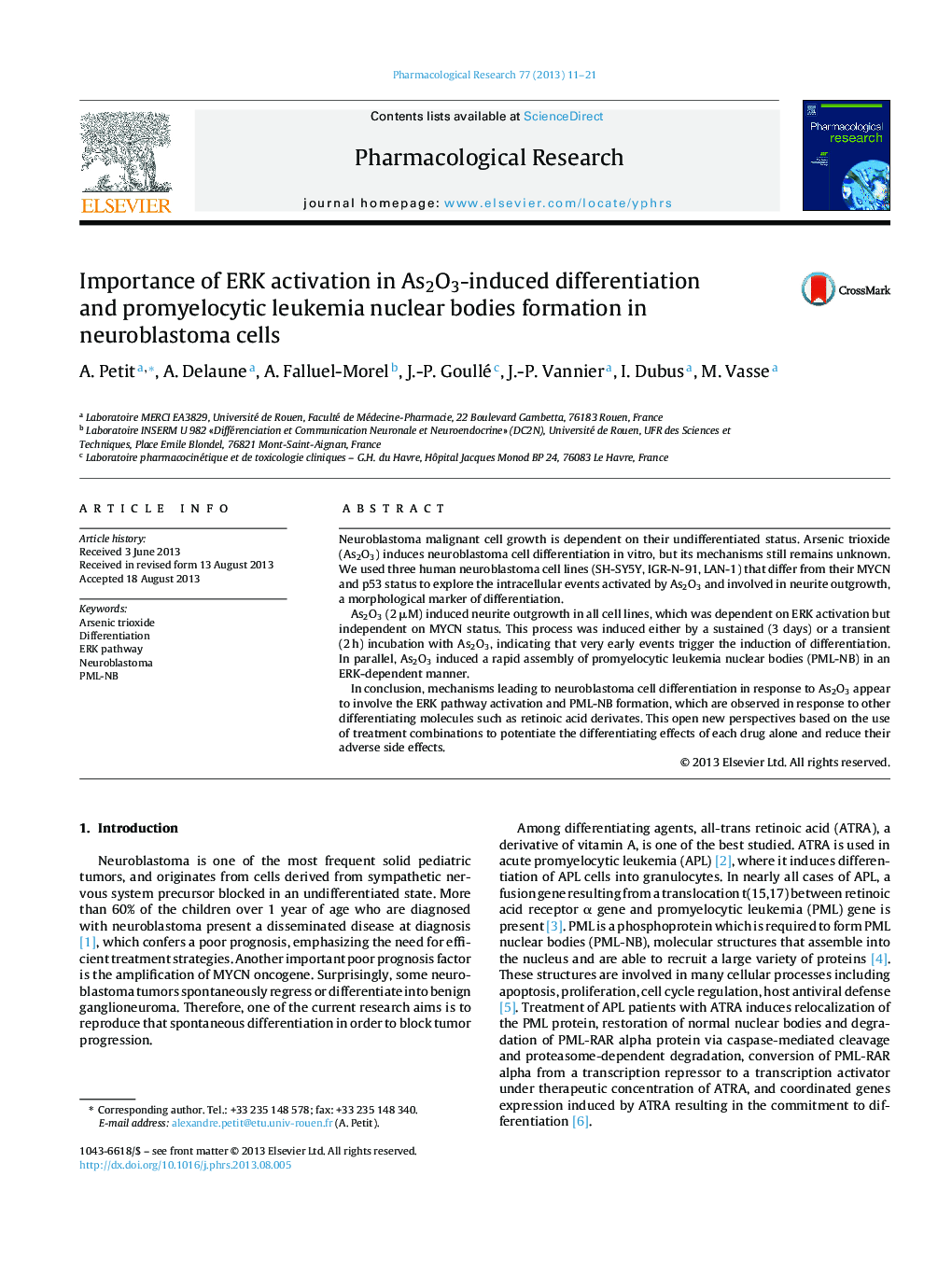| Article ID | Journal | Published Year | Pages | File Type |
|---|---|---|---|---|
| 2561323 | Pharmacological Research | 2013 | 11 Pages |
Neuroblastoma malignant cell growth is dependent on their undifferentiated status. Arsenic trioxide (As2O3) induces neuroblastoma cell differentiation in vitro, but its mechanisms still remains unknown. We used three human neuroblastoma cell lines (SH-SY5Y, IGR-N-91, LAN-1) that differ from their MYCN and p53 status to explore the intracellular events activated by As2O3 and involved in neurite outgrowth, a morphological marker of differentiation.As2O3 (2 μM) induced neurite outgrowth in all cell lines, which was dependent on ERK activation but independent on MYCN status. This process was induced either by a sustained (3 days) or a transient (2 h) incubation with As2O3, indicating that very early events trigger the induction of differentiation. In parallel, As2O3 induced a rapid assembly of promyelocytic leukemia nuclear bodies (PML-NB) in an ERK-dependent manner.In conclusion, mechanisms leading to neuroblastoma cell differentiation in response to As2O3 appear to involve the ERK pathway activation and PML-NB formation, which are observed in response to other differentiating molecules such as retinoic acid derivates. This open new perspectives based on the use of treatment combinations to potentiate the differentiating effects of each drug alone and reduce their adverse side effects.
Graphical abstractFigure optionsDownload full-size imageDownload high-quality image (185 K)Download as PowerPoint slide
